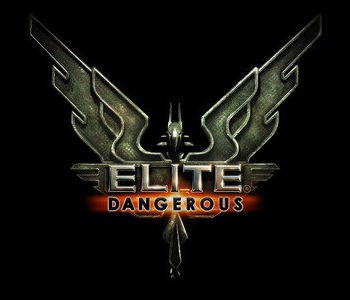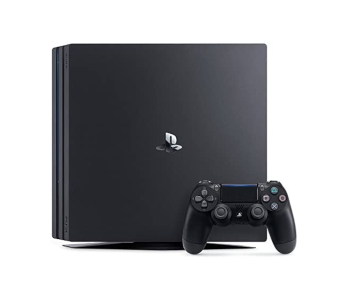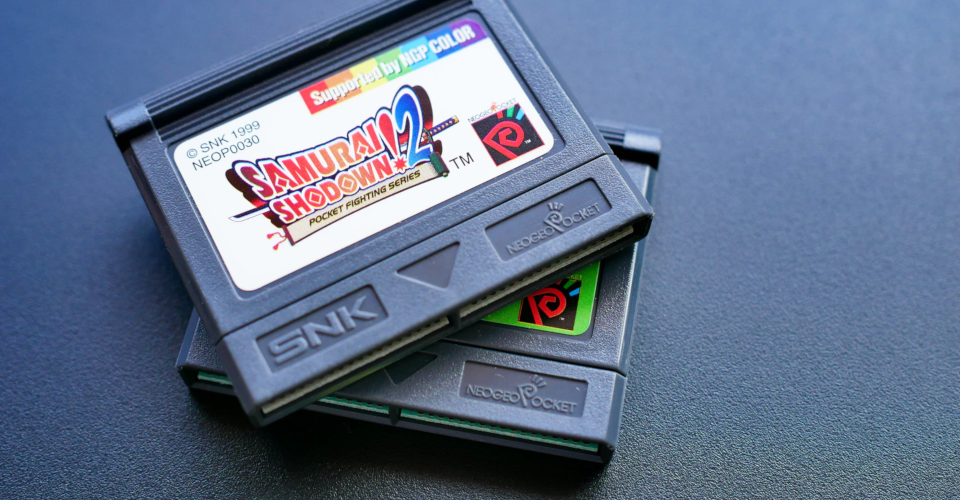Is It Better to Buy Video Games Digital or Physical?
Decades ago, there was really no other way to buy video games other than buying physical media like cartridges and CDs. Nowadays, fast Internet speeds and expanded storage have given gamers the option to buy the games from digital stores instead.
Despite the convenience offered by digital games, there is still a very vocal group of gamers who prefer to have old-fashioned physical collections. What makes either of the choices compelling and are there drawbacks to any of them? Which is the better option for gamers in 2020?
Physical games
Buying physical games can be considered old-school, but that’s what makes them cool. Just about every gamer has fond memories of dropping by their local video game stores regularly, even if they don’t intend to but anything and just want to look at the display cases. Back when digital downloads weren’t a thing yet, every major game launch meant that there would a literal queue of people that want to be the first to play the new game.
Even in 2020, there are still a lot of gamers who prefer to buy and collect physical video games. However, it also cannot be argued that the practicality of physical games has become questionable in today’s modern world.
PROS

Adds to your physical collection
Most of the older gamers can probably relate to the pride and joy of looking at the stack of physical games that you have collected through the years. This nostalgia is similar to how you feel when you look at old photographs – each one of those games sparks a memory of how you enjoyed the games of the years that have passed.
More often, gamers who like collecting physical games will also want to go for the collector’s editions of those games. These editions will throw in a couple of nice extras with those games, such as figurines, dioramas, and art books. These items serve to further enhance a gamer’s physical collection.
Having a physical copy of the game in your hands also means that you actually OWN it. Even if digital stores get shuttered or the online support for those games shut down, you will likely still be able to play those games. This is one of the strongest arguments of physical game collectors, especially in an era where online data is owned by large corporations and can be quickly revoked from users.
Can be sold or traded
There is a huge market out there for second-hand physical games. This is something that more practical gamers like to participate in, especially if they don’t care about amassing a large collection. Once they are done with playing a game, they can sell it online for a fraction of the original price. With the cash they earn from selling old games, they won’t need to spend as much on new games.
On the other side of the equation are the gamers who want to buy as cheaply as possible, even if they need to buy second-hand. Used games can sell for less than half the price of new copies, so there’s no doubt that this a practical option if you’re strapped for cash.
Does not rely on a strong Internet connection
Not everyone has an Internet connection that can support downloading video games. With major titles having download sizes upwards of 50 GB, this leaves some gamers without the choice to download them in digital copies. Instead, they can just go to the local game store, buy a copy, and have it ready to play when they get home.
Until high-speed Internet becomes available to every single place in the world, physical games will always remain relevant.
CONS
Adds more clutter to your house
This is a direct counterpoint to the benefit of having a physical collection – these physical games literally take up a lot of space. Some gamers might not mind dedicating an entire shelf or wall for their games, but others may not have the luxury of space to store a collection.
Rising housing costs have probably contributed to the migration of many gamers to digital downloads. Houses and apartments have gotten smaller and more expensive. When every square foot in an apartment matters, keeping a collection of hundreds of game discs sound downright impractical.
You may still need to download patches
One of the appealing factors for buying physical games is that they don’t require a stable and fast Internet connection to play. This used to be a given in the field of game development. Once a game shipped, it was in a state that was finished and should be perfectly playable without the need for fixes or patches.
This is no longer the case nowadays. It is no longer uncommon for video games to regularly need patches or fixes to address bugs and add features. The concept of the “day one patch” has also become standard. This has allowed game developers to publish games early and work on a patch that will address some of the kinks that they were unable to finish by the deadline.
Even more problematic for physical-only gamers are video games that rely on an online service. This is a given for multiplayer games, but even some single-player games require you to log in to some online service before the game can be played. This can be very frustrating for gamers without fast Internet connections, as it means that they get short-changed and cannot play the game with maximum or optimal features.
Can get damaged
We’ve often heard stories of gamers who have had their physical games damaged because of a fire or because their neighborhood got flooded. While the video games aren’t likely to be the heaviest casualty of such an event, it’s still heartbreaking to think that all those physical games are lost forever. If they want to play those games again, they will have to re-buy them.
Going digital means that you never have to worry about your games getting damaged. The worst-case scenario is your console or PC gets damaged, which means that you’ll have to redownload the games once you get your hardware replaced. Since you own the digital licenses for your games, you will never have to re-buy them as brand-new.
Some games aren’t published as physical copies
The availability of physical copies isn’t a problem for titles from major developers. However, many indie developers simply don’t have the capital for a physical release. If you want to play these lesser-known titles, you have no choice but to download them from a digital store.
Digital games
Whether you’re gaming on PC or consoles, downloading games from the respective digital stores is always an option. Whether through the Microsoft Store, PlayStation Store, Nintendo Store, Steam, or Epic Games, all these digital stores offer the same value proposition – the ability to buy the games you like without leaving the comfort and safety of your home.
Going digital offers a lot of benefits, but the debate over ownership seemingly holds back a lot of people from embracing the idea. There’s also the fact that showing off a digital library doesn’t have as much ‘oomph’ as showcasing your physical discs on a shelf.
PROS

Does not take up any physical space
If you have limited space in your apartment, then buying hundreds of physical games would seem like a poor decision. The great thing about buying digital is that you can have a library that’s even bigger but does not take any space at all.
Given the limitations of digital storage, you likely won’t be able to have all the games installed in your system. However, owning a digital license means that you can re-download these games whenever you want.
A full selection of games
One limitation of relying on your local game store to buy all your video games is that they may not always have the game you want on stock. This can be problematic if you’re looking for a title that is either too obscure or is selling too well. As we’ve mentioned, some indie titles may not even have physical copies at all. By buying digital, you can be sure that the titles you want will always be available when you want to buy them.
Very convenient
Buying digital means that you no longer need to make the trip to the game store. When big titles come around, buying your copy might mean having to spend several minutes to a few hours queueing up. Who has the time to do that nowadays?
Convenience is one of the major benefits of buying digital. With digital stores, you can add multiple games to your library without having to get up off your couch. The time you save by not going to the game store means that you can spend more time playing your new video games.
CONS
All your games are bound to your account
When you buy a game from a digital store, its digital license becomes bound to your account. This isn’t necessarily a bad thing. This means that you can redownload the same games should you decide to buy a new PC or transfer to a different console.
While convenient, the concept of account-based digital licenses is not without its dangers. We have heard so many nightmare stories of online accounts getting hacked resulting in their original owners losing access to them. The result is that they lose access to the potentially thousands of dollars’ worth of games they have purchased through the years.
The good news is that digital stores have made efforts to beef up the security of online accounts. These security measures include enabling two-factor authentication and advisories against phishing attempts. Ultimately, keeping your online account secure is mainly your responsibility.
You can’t resell digital games
Although digital stores can still be sold at huge discounts, the economics of reselling old games is hard to beat. Digital games cannot be transferred from one account to another, making the prospect of selling them impossible. For cash-strapped gamers who don’t care about keeping a copy of the games that they have finished, the re-sale market remains an attractive element of buying physical games.
Digital games have also eliminated the culture of gamers borrowing and lending games. This was a very common practice a few decades ago and is still done by gamers who buy physical.
Sales are seasonal and time-bound
The thing about physical games is that you can expect them to drop in prices eventually and stay at these discounted prices. If that year-old game is being sold at your local store for less than $20, then there’s really no need for you to buy it right now. You can come back to the same store in a month and see it at the same price – or even lower.
In contrast, many digital stores often sell games at full price even after they have been at the store for years. Buying an old game for $60 hardly seems like a good deal, which means you’ll have to wait for a sale to see a price drop for that game.
Online sales are massive and can save you up to 75% of a game’s original price. The problem with online sales is that they are often only active for a limited time. If you miss that 75% Black Friday deal for that game you’ve been eyeing, you might have to wait several months to see it go back to the same price. Time-limited sales are frustrating because they force gamers to buy the games right there and then, which may not be an option if you’re on a tight budget.
Other factors to consider when choosing physical vs. digital
The debate between physical and digital cannot be looked at in a vacuum. There are so many factors to consider that one person’s set of considerations may be different from another person. In addition to the pros and cons we have listed above, here are a few other considerations.
What system do you play in?

The digital gaming ecosystem can be a lot different depending on which system you use to play games. If you’re playing on PC, then you probably know that the physical market for games has but disappeared. Even if you do buy a physical edition of a PC game for collectibles, it will most likely only provide a download code for the digital copy of the game. PC gamers have acclimatized well to this and have embraced digital stores like Steam and Epic Games.
If you’re playing on a console, then it’s still a toss-up between digital or physical. Time will tell if the physical market for consoles will go the way of the PC, but this seems unlikely to happen within the next console generation.
Do you travel a lot?
The answer is obvious here – if you travel a lot and would like to play games during your trips, then you’d better have them downloaded digitally. This applies to both consoles and PCs. In the case of the Nintendo Switch, the physical game cards are small enough to carry around on a travel pouch.
Does your Internet plan have a data cap?
Digital downloads and data caps are a bad combination. As we’ve mentioned, the download size of major game titles can range from 50 GB to 100 GB. Downloading two or three of these titles and playing them via an online service can easily eat up on your Internet plan’s monthly data cap.
Final thoughts
Whether you buy physically or digitally, you can take comfort in the fact that each option has its merits. While it’s really nice to have a collection of physical games, digital stores offer the convenience of allowing you to buy games without having to make the trip to the store. More practical gamers like buying physical because of the re-sale value of physical discs, but some gamers are patient enough to wait for the titles they like to be sold at huge discounts in digital stores.
Ultimately, it doesn’t matter how you buy your video games as long as you derive happiness from playing them. We can’t stress this enough, though – enable two-factor authentication on ALL your online accounts.


I have played a lot of games without day one patch and without internet and I never had a problem,there are very few games that are unplayable without a patch, about 10 after my research and not big releases